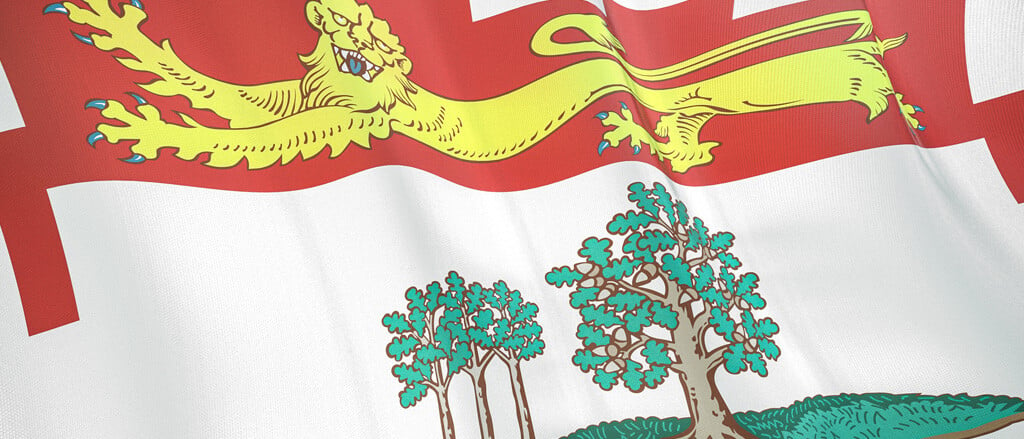
Payroll legislation Prince Edward Island businesses don’t want to miss!
You’re relied upon as your team’s payroll pro, so we know we don’t have to tell you that legislative requirements differ between provinces and territories in Canada. But we also know that this information isn’t always easy to come by, especially when changes occur.
To support businesses based in Prince Edward Island (PEI) or organizations with employees in the province, we’ve consolidated a few of the province’s payroll legislative requirements for which having centralized info will really come in handy. If that’s you, read on – we’ve got you covered!
Minimum wage – increased in October 2024!
Federal and provincial legislation determines the lowest rate at which an employer can legally pay their employees (known as minimum wage). Every jurisdiction in Canada has minimum wage legislation; however, the details differ between provinces and territories and it’s the employer’s responsibility to ensure they’re adhering to the applicable legislation.
In PEI, there’s one general minimum wage rate – which increased on October 1, 2024. For more information about minimum wage in the province, visit: https://www.princeedwardisland.ca/en/information/workforce-advanced-learning-and-population/minimum-wage-order-board-and-lodging.
Overtime
An exception to minimum wage occurs when an employee exceeds their normally scheduled hours, therefore qualifying for overtime rates. Businesses with employees in PEI should be mindful of the parameters for overtime because, while many jurisdictions regulate it at 40 or 44 hours per week, PEI’s employee eligibility is 48 hours per week. “In most positions, the standard work week is 48 hours, after which the employee is eligible for time and one-half their regular rate of pay,” reads the province’s website.
While overtime is an exception to minimum wage, there are also exceptions to overtime within certain industries in PEI, referred to as the Standard Work Week Exemption Order. It’s also possible for employees to bank their overtime hours through a written request to their employer, where employees accrue 1.5 hours paid time off for each hour of overtime worked.
For more information on overtime in the province, visit: https://www.princeedwardisland.ca/en/information/workforce-advanced-learning-and-population/overtime.
Payworks pro tip: For an overview of overtime and the steps to consider in making a strategic plan that clearly defines overtime, visit: https://blog.payworks.ca/overview-of-overtime-employers-should-have-a-strategic-plan-that-clearly-defines-overtime.
Vacation pay
Payroll legislation of which businesses with employees in PEI should be mindful is the rate for vacation pay. The legislation across many jurisdictions in Canada changes after an employment period of five years; in PEI, the percentage of vacation pay doesn’t increase until after eight or more years of employment.
|
Vacation pay in PEI |
|
4% for less than 8 years |
|
6% for 8 years or more |
For more information about vacation and vacation pay in the province, visit: https://www.princeedwardisland.ca/en/information/workforce-advanced-learning-and-population/vacation-and-vacation-pay.
Vacationable earnings
Vacationable earnings are a specific type of earning by which an employee is compensated (regular salary, etc.) and upon which vacation pay is also calculated. Not all earnings and allowances are considered vacationable earnings, and that legislation differs between every jurisdiction in Canada.
In PEI, employers should be aware of a few instances that differ in comparison to other provinces and territories when it comes to vacationable earnings:
- Standby pay (also known as on-call pay) is a vacationable earning.
- Pay in lieu of notice is a vacationable earning.
- Board and lodging is a vacationable earning.
- Previously paid vacation pay is not a vacationable earning.
For more information on vacationable earnings in Canada, visit: https://payroll.ca/CPAWebsite/media/PDF/Tools/Vacationable-Earnings-EN.pdf.
Paid holidays
Paid holidays (also known as statutory holidays) are legislatively-recognized days where eligible employees are typically entitled to take the day off work with pay. Every jurisdiction in Canada has public or statutory holidays, but which days are recognized and employee eligibility to receive statutory holiday pay differs between provinces and territories. Statutory holidays can also depend on whether or not the workplace is federally regulated or on the industry type (for example, retail).
In PEI, there are eight paid holidays:
- New Year’s Day
- Islander Day
- Good Friday
- Canada Day
- Labour Day
- National Day for Truth and Reconciliation
- Remembrance Day
- Christmas Day
For more information about paid holidays, including employee eligibility and calculating statutory holiday pay in the province, visit: https://www.princeedwardisland.ca/en/information/workforce-advanced-learning-and-population/paid-holidays.
Canadian payroll legislation is an evolving landscape and we understand that having access to consolidated resources is a payroll professional’s dream! Download a free copy of our Payroll Guide so you can stay informed on the most pertinent legislative elements (and changes when they occur!). We love helping Canadian business pay their teams accurately: https://www.payworks.ca/landing-pages/campaigns/payroll-guide.
Key topics in this article:
ResourcesPayroll ResourcesBusiness OwnerSMEFranchiseeHospitalityPayroll ManagementLegislationThese articles are produced by Payworks as an information service. They are not intended to substitute professional legal, regulatory, tax, or financial advice. Readers must rely on their own advisors, as applicable, for such advice.














